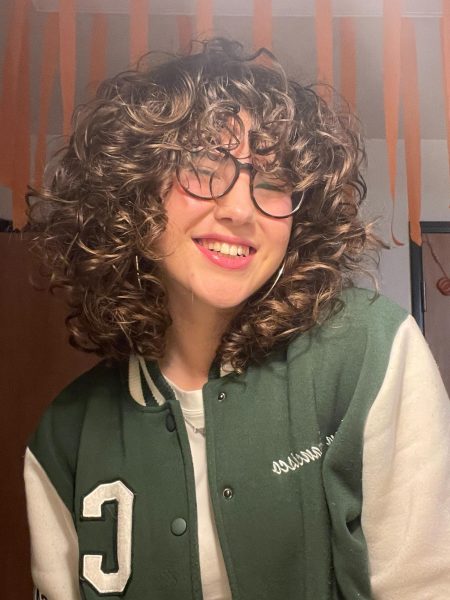With many changes to legislation about reproductive health in recent years, many people are left concerned and confused about what options are still left when they see a positive response to their pregnancy test.
Recently, the U.S. Supreme Court was met with a case advocating for a nationwide ban on mifepristone, which was the first FDA-approved abortion medication in the United States. In the wake of this heated conversation in Washington, D.C., as well as the overturning of Roe v. Wade nearly two years ago, many people are wondering: what options will soon remain in the realm of reproductive care?
Many students’ first thought is the Grand Valley State University Campus Health Center located on the Allendale campus and is run through Trinity Health. The clinic doesn’t offer any kind of prenatal care, only referrals to student-chosen providers, since there are other options available around Allendale and the greater Grand Rapids area for students in need of resources.
Planned Parenthood has long been one of the leading household names in the reproductive care conversation. In the past, Heritage Clinic for Women was another option available for abortion education and procedures, however it is permanently closed, leaving Planned Parenthood as the main abortion education center and provider in this area of Western Michigan.
The Pregnancy Resource Center of Grand Rapids (PRCGR) also provides limited medical services, including abortion education, as does HELP Pregnancy Aid.
However, there’s another side to the resources available through Alpha Women’s Center, Positive Options and GVSU’s chapter of Protect Life MI, a pro-life, Michigan-wide, collegiate student organization. These centers and organizations, as well as PRCGR and HELP Pregnancy Aid, are considered crisis pregnancy centers (CPCs). According to the Reproductive Transparency Now (RTN) website they can alternatively be known as “pregnancy care clinics” or “fake women’s health clinics.” RTN’s website describes crisis pregnancy centers as “nonprofit organizations with a primary aim of keeping women from having an abortion.”
According to the Reproductive Transparency Now website, other missions of these centers include “evangelism and promoting abstinence until marriage, marriage, and parenthood.” Their website also says, “Most CPCs in the U.S. are affiliated with national religious organizations who oppose abortion and have policies against promoting and providing contraception. Government funding for CPCs is an increasing national trend.”
In the Allendale and Grand Rapids area, CPC’s greatly outnumber reproductive resource centers like Planned Parenthood, that offer actual medical services. Instead, CPC’s typically fall in two categories: those that solely offer pregnancy tests and related information, and those that offer very limited medical services, including “pregnancy confirmation services” that involve obstetric ultrasounds. Some places offer classes and programs regarding parenting or early parenthood as well.
While these services are essential, they can be confusing to those seeking procedural medical services, like an abortion. These resource centers often prey on people in crisis to push a religious-based agenda. They market themselves as a pregnancy resource center to get people in the door, and then when patients realize they are a religiously affiliated organization, they are not offered abortion care, leaving patients are confused.
Mae Zurita, a graduate assistant at the Office of Multicultural Affairs, wants to combat this spread of misinformation and deceiving advertising pertaining to abortions or pregnancy resources.
Zurita has dedicated this school year to research and report GVSU’s relationship with expressive activity across campus, alongside students Alyssa Beil and El Beringer as part of the Social Justice Centers’ programing. Together, they created the “Action Without Reaction” series, which aims to teach students about institutional policies regarding expressive activity on campus. GVSU defines expressive activity in many ways including rallies, vigils, “other expression protected by the First Amendment to the U.S. Constitution” and more. GVSU maintains a neutral standpoint regarding visitors or students who partake in expressive activity on campus and afford them the necessary protections.
This pertains to expressive activity by anti-abortion and pro-life organizations, including but not limited to Positive Options, Protect Life MI and the Alpha Women’s Center.
There is also often an abundance of religiously affiliated speakers that come to speak on campus under the expressive activity policies, one common zone being the Cook Carillon Tower. For example, Adam LaCroix, the leading member of TeamJesusPreachers, whose visit to campus in October of 2023 caused an uproar from students.
During her research, Zurita spent time specifically reviewing anti-abortion groups that are frequently present on campus, especially highlighting Positive Options, which has advertisements on six of the GVSU branded Laker Line buses that frequently run through campus.
“The major problem with these groups is that they aren’t transparent with what they’re getting from this (outreach, or what their goal is). Especially the people they bring into those spaces; those people are incentivized to not speak about this,” Zurita said. “If someone is experiencing an issue like (unplanned pregnancy. These groups) are attempting to isolate this person and shame them into not talking about this with anybody, and not talk about what these groups are (doing).”
These characteristics of CPCs is part of what Zurita feels can make them dangerous to the GVSU and greater community.
“These groups do not have to be factually accurate at all,” Zurita said. “These groups are classified as religious organizations, and religious organizations are exempt from rules about spreading medical misinformation.”
Zurita said she is not advocating against the use of CPCs, rather Zurita is trying to raise awareness about the potentially predatory nature of the organizations.
“It seems that these spaces are something that people in the community use. I’m pro-choice, and if people don’t want to get an abortion, that’s okay,” Zurita said. “It’s when you start providing misinformation about what people’s options are, and that’s what these groups are dedicated to doing. (The organizations) want to influence students to get into a situation where they aren’t sure what to do and might make decisions that could lead to a lot of harm.”















